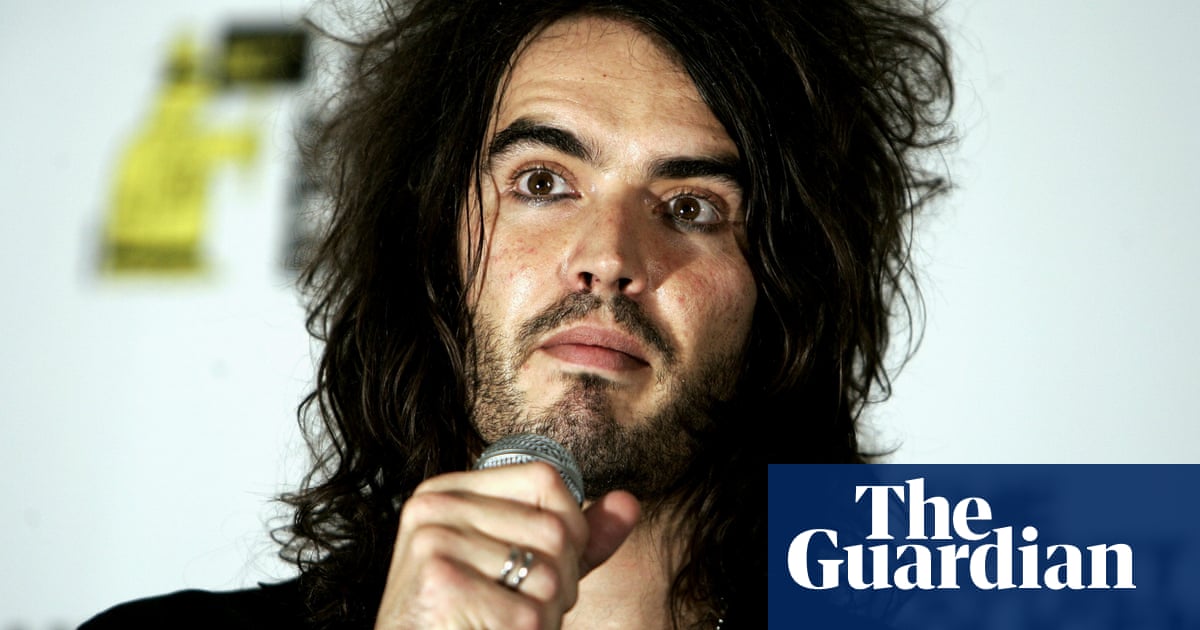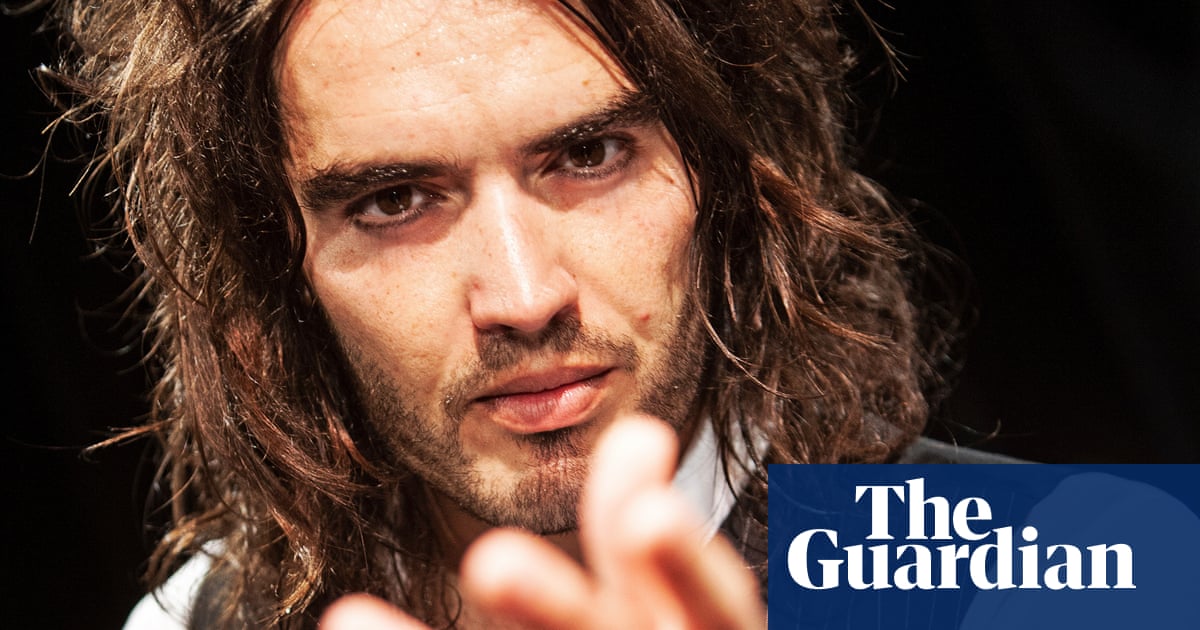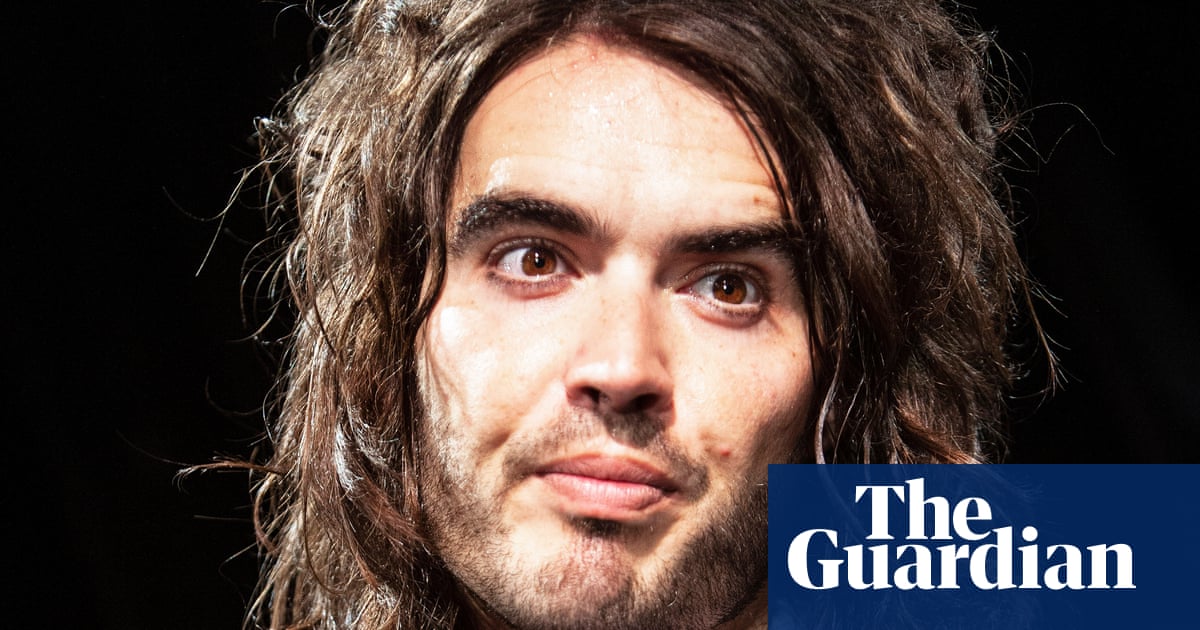
It came as little surprise that the darker corners of the internet were ablaze with conspiracy theories this week, after Russell Brand used his YouTube channel to call the allegations of sexual assault and rape against him a “coordinated attack” and a “serious and concerted agenda” to control his voice.
But even among more mainstream voices, questions were raised about the timing. Toby Young, a former editor at the Spectator, asked if there was a “more innocent” reason why the Times, the Sunday Times and Channel 4 Dispatches had “waited this long to produce their findings”, while the British business magnate Alan Sugar tweeted that it was “strange” that multiple people had come forward at the same time.
Others wondered why it had taken so long for the story to be published despite rumours swirling about Brand’s behaviour for years. In the Dispatches documentary Russell Brand: In Plain Sight, the comedian Daniel Sloss said he had heard “allegations and rumours” about Brand, while Deadline reported that Brand was dropped from Comedy Central’s Roast Battle in 2018 after another comedian, Katherine Ryan, repeatedly accused him of being a “sexual predator”.
The reason, according to multiple experts, is simple: publishing stories like this in England and Wales is extremely difficult, and fraught with risk.
“People often think that we have a law that protects free speech here. We don’t. We have a law that protects reputation,” says Caroline Kean, a partner at Wiggin who represented the journalist Catherine Belton when she was sued by multiple Russian billionaires. “Getting stories out like this may sound easy to people who watch a lot of crime dramas, but it’s actually incredibly difficult.”
In England and Wales, the subjects of unwanted stories can sue for libel if they believe their reputation has been damaged. The responsibility is on the party taken to court, not the subject of the allegations, to prove the story is “substantially true” on the balance of probabilities, while other defences include that the story was in the public interest, or an honestly held opinion backed up by facts. Developments in privacy laws in the last 25 years have made it more difficult to publish, according to experts.
Which is probably why, as Louisa Compton, the head of news at Channel 4, explained on the BBC Radio 4’s Media Show this week, the teams had “really spelled out how we managed to verify what we have”. Journalists had reportedly interviewed hundreds of sources and seen private emails, texts, medical and therapists’ notes as well as submitting freedom of information requests, scrutinising Brand’s books, interviews and broadcasts to corroborate allegations.
The journalists – and their legal teams – will also have been well aware that Brand had taken legal action previously. In 2014 he accepted “substantial” libel damages from the Sun on Sunday over the false claim that he cheated on his girlfriend Jemima Khan. In the same year the couple were granted an anti-harassment injunction against a masseuse, after police said there was no case to answer over her claims that Brand had assaulted her.
Legal battles can take years and costs are difficult to recoup even if the publisher wins, adds Kean. “Even the big organisations work on a budget, and they have seen cuts and advertising slashed,” she says. “Publishers are having to make calculated, commercial choices on whether they can afford to run certain stories. And as a result many true stories don’t get published.”
The stakes are high for major media groups, but even higher for alleged victims who decide to tell their stories and have little financial backing or legal teams in place to support them, says Mark Stephens, a partner at Howard Kennedy.
“One of the standard ploys, which one particular law firm in London is doing, is to sue or threaten to sue the individual woman, not the journalist or the newspaper,” says Stephens, who represented Zelda Perkins, a former assistant to the disgraced US film producer Harvey Weinstein.
The effect is “chilling”, says Helena Kennedy KC, a criminal lawyer and Labour peer, and many women stay silent because they fear “having the bats of hell come after them”.
While ministers have made amendments to the economic crime and corporate transparency bill to tackle so-called Slapps (strategic lawsuits against public participation) – legal actions often characterised by “large numbers of aggressive pre-action letters, targeting a financially weak defendant and bringing claims simultaneously in multiple jurisdictions” – these will only relate to Slapps linked to economic misdeeds.
Kennedy is among those who argue legislation needs to be extended. “The very rich can weaponise the law, it’s called lawfare,” she says. “And those tactics are also being used by powerful men to silence women.” A Ministry of Justice spokesperson said the government was “committed to legislating to cover all forms of Slapps as soon as possible”.
Zelda Perkins, who co-founded Can’t Buy My Silence after blowing the whistle about Weinstein’s behaviour, said threats were often combined with non-disclosure agreements to protect abusers. “The law is being perverted to protect and enable abuse rather than uphold justice,” she says. “The rule of law shouldn’t only apply to those with the biggest bank accounts”.












